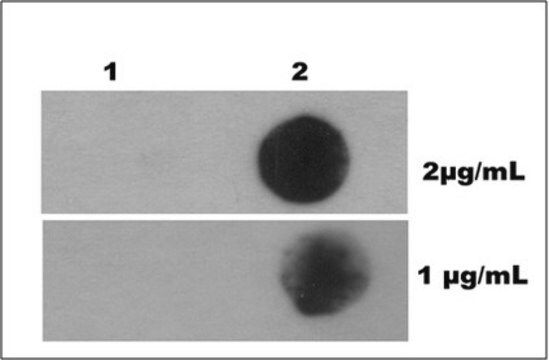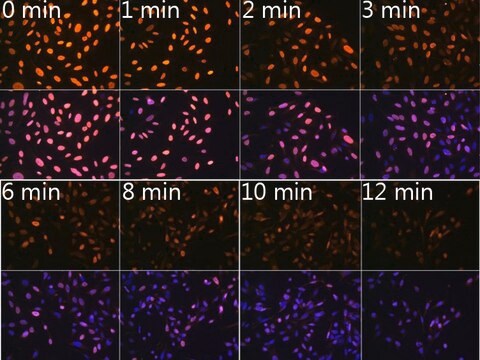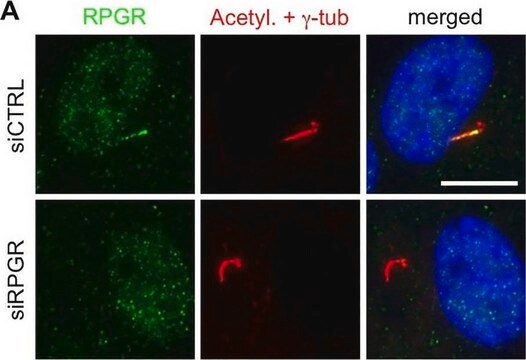ZMS1124
Anti-m6A Antibody, clone 17-3-4-1 ZooMAb® Mouse Monoclonal

recombinant, expressed in HEK 293 cells
Sinónimos:
m6A
About This Item
Productos recomendados
origen biológico
mouse
Nivel de calidad
recombinante
expressed in HEK 293 cells
conjugado
unconjugated
forma del anticuerpo
purified antibody
tipo de anticuerpo
primary antibodies
clon
17-3-4-1, recombinant monoclonal
Línea del producto
ZooMAb® learn more
Formulario
lyophilized
purificado por
using protein G
reactividad de especies (predicha por homología)
all
envase
antibody small pack of 25 μL
características de los productos alternativos más sostenibles
Waste Prevention
Designing Safer Chemicals
Design for Energy Efficiency
Learn more about the Principles of Green Chemistry.
validación mejorada
recombinant expression
Learn more about Antibody Enhanced Validation
sustainability
Greener Alternative Product
técnicas
dot blot: suitable
flow cytometry: suitable
immunocytochemistry: suitable
isotipo
IgG1λ
secuencia del epítopo
Unknown
categoría alternativa más sostenible
Condiciones de envío
ambient
temp. de almacenamiento
2-8°C
modificación del objetivo postraduccional
unmodified
Descripción general
Especificidad
Inmunógeno
Aplicación
Evaluated by DOT blot analysis with RNA oligos with m6A modification.
Dot Blot Analysis (DB): A 1:1,000 dilution of this antibody detected N6-methyladenosine in RNA oligos with m6A modification.
Tested Applications
Flow Cytometry Analysis: Flow Cytometry Analysis (FC): 1 µg of this antibody detected m6A in U2OS cells treated with 10 M BrdU, 24-28 h prior to UV-C treatment.
Immunocytochemistry Analysis: Immunocytochemistry Analysis (ICC): A 1:100 Dilution of this antibody detected m6A in U2OS cells treated with 10 M BrdU, 24-28 h prior to UV-C treatment.
Note: Actual optimal working dilutions must be determined by end user as specimens, and experimental conditions may vary with the end user.
Descripción de destino
Forma física
Almacenamiento y estabilidad
Información legal
Cláusula de descargo de responsabilidad
¿No encuentra el producto adecuado?
Pruebe nuestro Herramienta de selección de productos.
Código de clase de almacenamiento
11 - Combustible Solids
Clase de riesgo para el agua (WGK)
WGK 1
Punto de inflamabilidad (°F)
Not applicable
Punto de inflamabilidad (°C)
Not applicable
Elija entre una de las versiones más recientes:
Certificados de análisis (COA)
¿No ve la versión correcta?
Si necesita una versión concreta, puede buscar un certificado específico por el número de lote.
¿Ya tiene este producto?
Encuentre la documentación para los productos que ha comprado recientemente en la Biblioteca de documentos.
Nuestro equipo de científicos tiene experiencia en todas las áreas de investigación: Ciencias de la vida, Ciencia de los materiales, Síntesis química, Cromatografía, Analítica y muchas otras.
Póngase en contacto con el Servicio técnico







